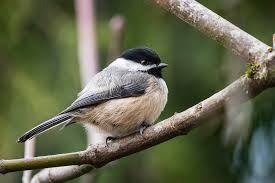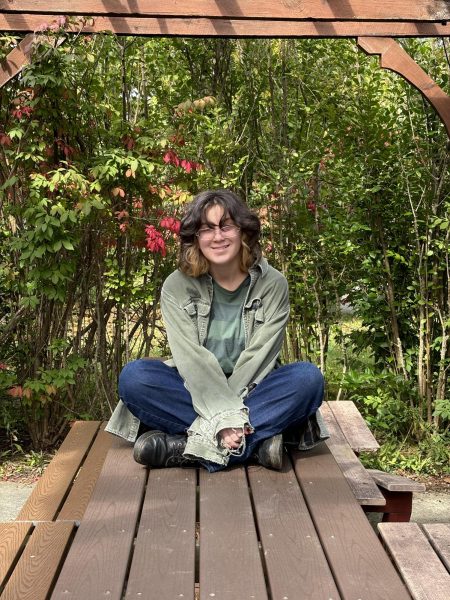
Have you ever wondered what the state bird of Massachusetts is? Probably not before you read the headline. The state bird of Massachusetts, made official in 1941, is the black-capped chickadee.
This small, lovable bird is social, curious, and naturally friendly towards humans. That doesn’t mean that you’re gonna be able to befriend one as soon as you lay eyes on it, but give them seed and patience, and they can become a friendly companion.
You can identify a chickadee by its grey, tan, and white coloring, along with a black head, as if it were wearing a little hat. Males often have a slightly larger, deeper black bib and brighter white cheek patches. These birds are on the smaller side, averaging around 12-15 cm in height, the same size as a sparrow. When they’re flying in the air, if you look up, you can see that they have a rounded wing shape, which is ideal for sharp turns and fast acceleration.
Black-capped chickadees are omnivores, with a diet that consists of seeds, fruit, and insects, and other invertebrates. Even with this healthy diet, most in the wild only live about 2-3 years, 85% of them dying within the first year due to competition and predation. However, they can live longer, the longest recorded lifespan of a chickadee being 11.5 years.
During their lifetime, they will usually mate for life, except in the scenario of a higher-ranking male appearing. They will lay eggs in a clutch of up to thirteen, and the incubation period lasts 12 to 16 days. Their eggs are white with reddish-brown spots.
Unlike a lot of northeastern birds, the black-capped chickadee doesn’t migrate and stays in the northern part of America, breaching into Canada. They also recognize and remember individual people, so you have all year to try to bond with any you might find.
There is, however, a special case where birds migrate not for seasonal migratory reasons, but for other purposes. This is called irruption, a sudden, large movement of an animal population, usually driven by a food shortage, climate issues, or other favorable conditions somewhere else.
Aside from its physical attributes, the birds have special meaning to many people. People believe that the black-capped chickadee is a symbol of positivity, joy, good luck, courage, adaptability, and communication.
In some regions of America, it could have negative connotations, serving as a warning that something bad is about to happen. This comes from the birds’ communication skills and the thought that they warn others in their flock when danger approaches.
Chickadees also have significant symbolism in a person’s dreams. During your sleep, if you see a chickadee in your dreams, it is said to mean that good things are going to happen, and you will be successful in your future projects.
A flying or singing chickadee wants you to communicate with more people because you are about to meet an exciting individual.
However, if you see a dead chickadee in your dreams, it is supposedly a warning to check and take care of your health, or it is a sign that someone with ill intentions is close to you.
So next time, whether you’re asleep or awake, no matter the time of year, keep an eye out for the black-capped chickadee.









